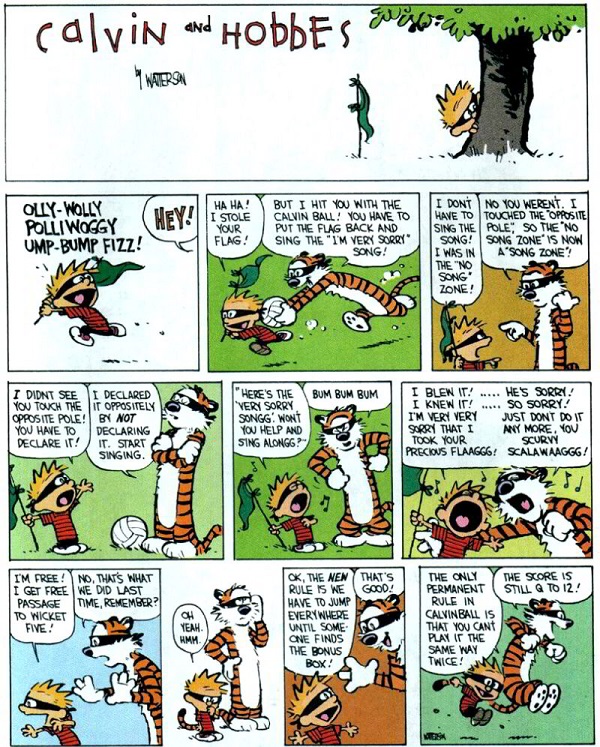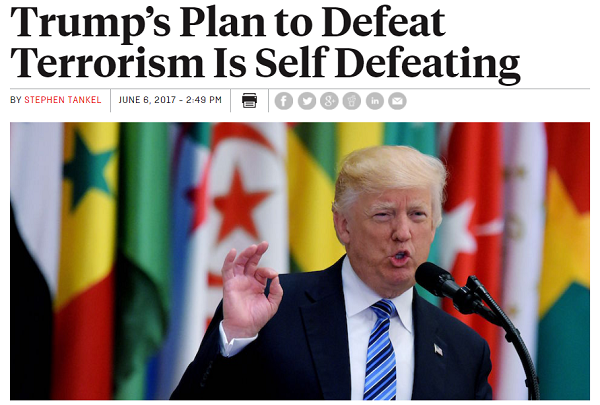Do nothing — just don’t do, eh?
Sunday, December 31st, 2017[ by Charles Cameron — Trump — Lao and Chuang on their way to the New Year — & Iran ]
.
It’s quizzically amusing for someone with basic meditative or comparative religious eyes to read Philip Gordon‘s NYT piece yesterday, How Can Trump Help Iran’s Protesters? Be Quiet.
I, too, want to see the government in Tehran weakened, moderated or even removed. So let me offer Mr. Trump some unsolicited advice: Keep quiet and do nothing.
Ah, quiet. Ah, nothing.
**
Wu-wei, not-doing, is a basic principle of Taoism, the religion or school of philosophy which gave us Lao Tsu, author of the Tao Te Ching, and Chuang Tsu, the master humorist of Chinese philosophy.
Lao Tsu:
Thirty spokes share a single hub; grasp the nothingness at its center to get the use of the wheel. Clay is fashioned to make a vessel; grasp the nothingness at the center to get the use of the vessel. Bore windows and doors to create a room; grasp the nothingness of the interior to get the use of the room. Thus that which is constitutes what is valuable, but that which is not constitutes what is of use
Ah, nothing.
But as that fourth aphorism indicates, wu-wei, nothing doing, is nothing without wei wu-wei, doing-nothing-doing — doing that springs effortlessly from the way of things. What results is true excellence.
Chuang Tsu:
Cook Ding was cutting up an ox for Lord Wenhui. At every touch of his hand, every heave of his shoulder, every move of his feet, every thrust of his knee – whop! whish! He wielded his knife with a whoosh, and always in perfect rhythm, as though he were performing the Dance of the Mulberry Grove or keeping time to the Jingshou music.
“Ah, marvelous!” said Lord Wenhui. “Imagine skill reaching such heights!”
Cook Ding laid down his knife and replied, “What I care about is the Dao, which goes beyond skill. When I first began cutting up oxen, all I could see was the ox itself. After three years I no longer saw the whole ox. And now – now I meet it with my spirit and don’t look with my eyes. Perception and understanding have come to a stop and spirit moves where it wants. I go along with the natural makeup, strike in the big hollows, guide the knife through the big openings, and follow things as they are. So I never touch the smallest ligament or tendon, much less a main joint.
“A good cook changes his knife once a year – because he cuts. A mediocre cook changes his knife once a month – because he hacks. I’ve had this knife of mine for nineteen years and I’ve cut up thousands of oxen with it, and yet the blade is as good as though it had just come from the grindstone. There are spaces between the joints, and the blade of the knife has really no thickness. If you insert what has no thickness into such spaces, then there’s plenty of room – more than enough leeway for the blade to play about. That’s why after nineteen years the blade of my knife is still as good as when it first came from the grindstone.
“However, whenever I come to a complicated place, I size up the difficulties, tell myself to watch out and be careful, keep my eyes on what I’m doing, work very slowly, and move the knife with the greatest subtlety, until … flop! – the whole thing comes apart like a clod of earth crumbling to the ground. I stand with my knife raised and turn to look all around, prancing in place with complete satisfaction. Then I wipe off the knife and put it away.”
“Excellent!” said Lord Wenhui. “I have heard the words of Cook Ding and learned how to nurture life!
Aha! Nothing, doing!
**
And now back to that original question:
How Can Trump Help Iran’s Protesters?
And the resply?
Be Quiet.
Be quiet! And listen, listen. Let the CIA in place just listen.
Hey, Happy New Year!







